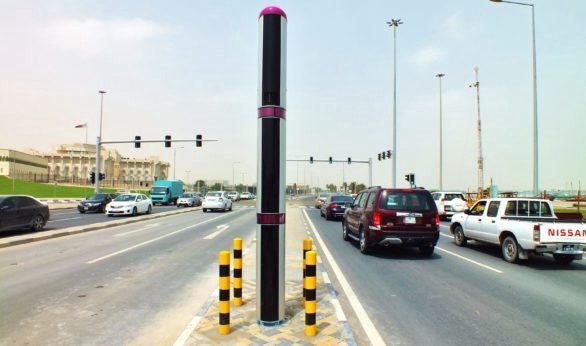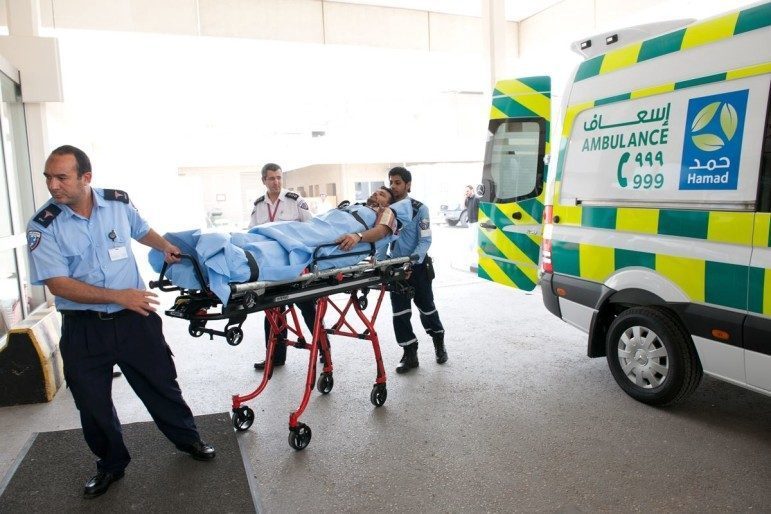
Driving on Qatar’s roads appears to be getting less perilous, with the number of road deaths, accidents and traffic offenses all falling in 2016.
According to the Ministry of Interior (MOI), some 178 people in Qatar died in traffic-related accidents last year. That’s down 22 percent from the 227 killed in 2015.
Number of drivers killed in road crashes in 2016 were 66 (37.1%) while passengers 55 (30.9%) and pedestrians 57 (32%). #MoI_Qatar
— Ministry of Interior (@MOI_QatarEn) February 8, 2017
Officials attributed the decline in deaths to better ambulance response, more police patrols and an increase in the number of radars around Qatar.
Fewer drivers on the roads could also be playing a factor, thanks to several licensing restrictions passed over the last few years.

Meanwhile, even though they surged toward the end of 2016, overall traffic offenses dropped nearly 5 percent from the year before. These numbered 1,643,209, down from 1,720,735.
And the total number of road accidents also fell in 2016 by 7.8 percent in comparison with 2015.
Cause of death
According to the MOI, some 95 percent of the people killed in road accidents last year were men, while 5 percent were women.
Notably, though Qataris only account for about 10 percent of the population, they are dying in disproportionate numbers on the roads.

QNA reports that 16 percent of the people who died last year in road accidents were Qataris.
Asians accounted for some 54 percent of the deaths, while non-GCC Arabs comprised 22 percent.
Officials cited speeding, lack of discipline and tailgating as key causes of road deaths last year.
Not wearing a seatbelt also contributed to injury and death.
Speaking to the Qatar Tribune, the head of the Traffic Department Brig. Mohammad Saad al Kharji said mandating seatbelt usage for backseat passengers is now under study.
Pessimistic view
Even though the roads appear to be growing safer, some residents continue to believe otherwise.
In November, a survey found that many Qatar drivers continue to engage in dangerous practices such as speeding, tailgating and using a mobile phone while behind the wheel.

However, fewer people than in the previous edition of the Qatar Road Safety Monitor did say their morning commute was improving.
The observation comes as public works authority Ashghal builds new routes across Qatar and replaces roundabouts in Doha with signal-controlled intersections to make the junctions less dangerous.
Have you noticed improved road conditions? Thoughts?






